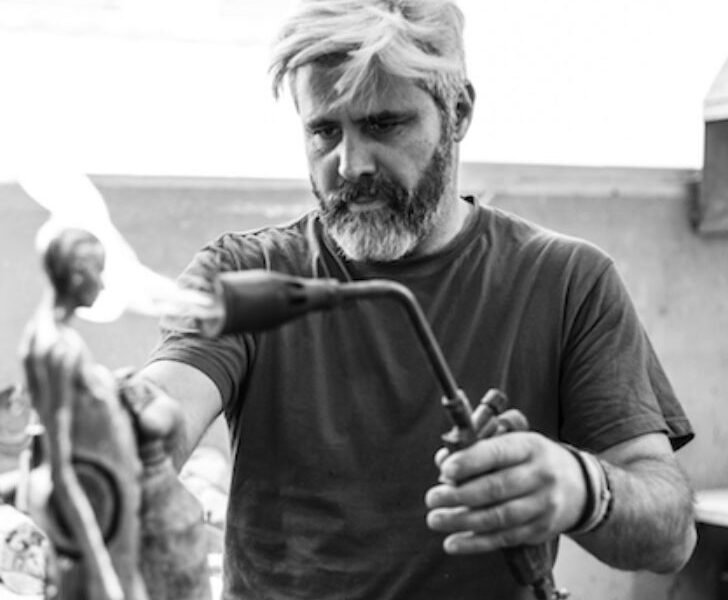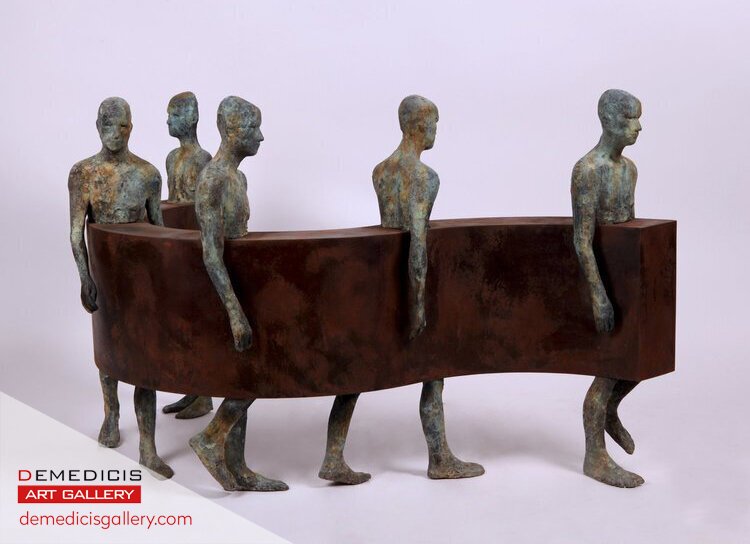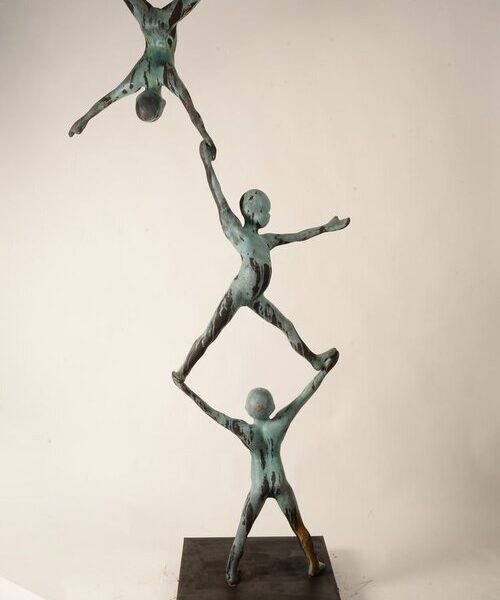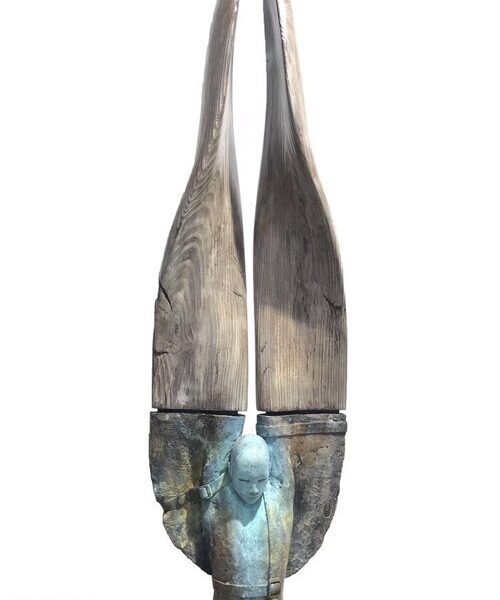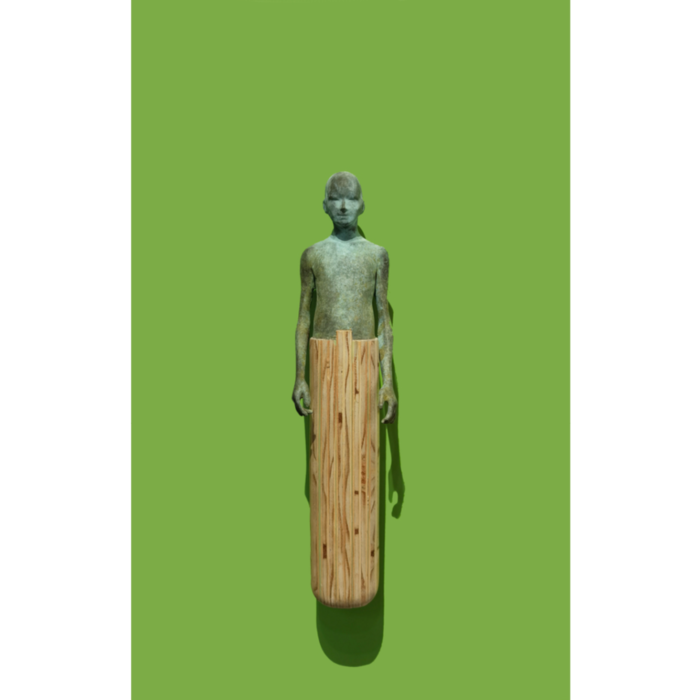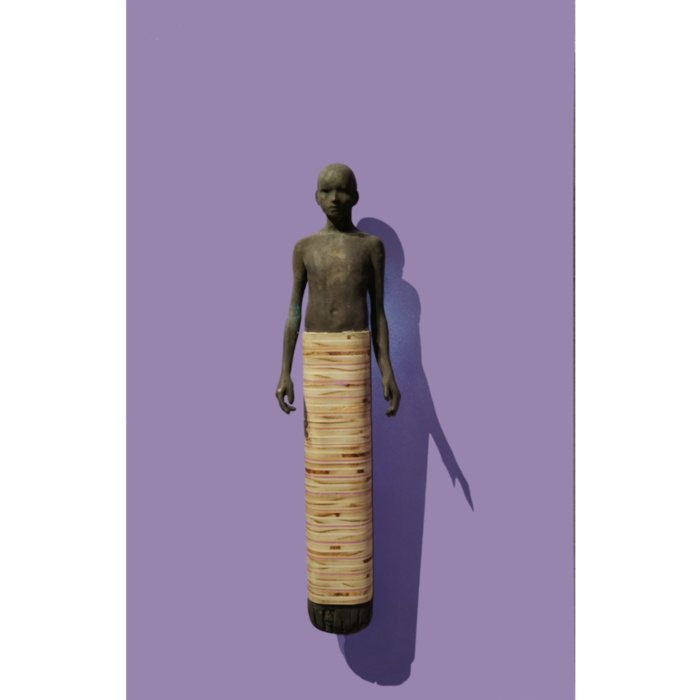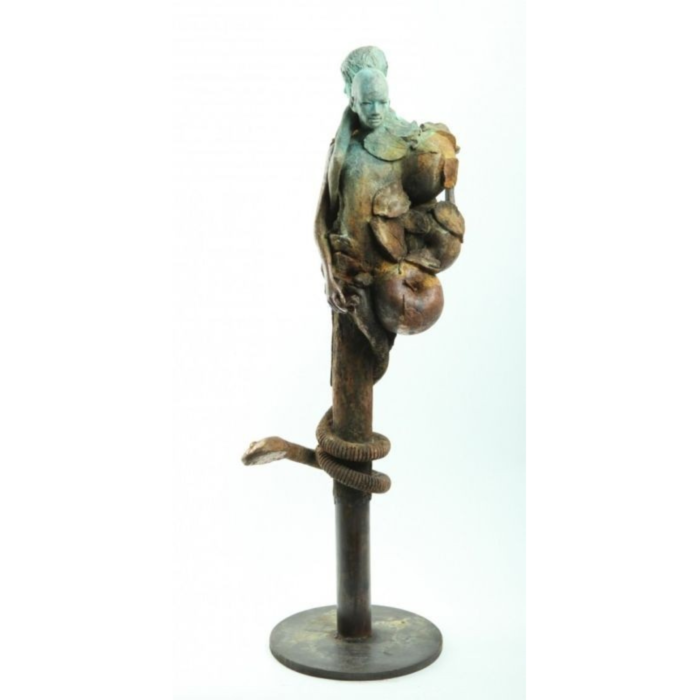JESUS CURIA
His work shows a growing interest in ethnic sculpture and the transformation of the human body over time. His work is defined by a precise visual language, ranging from totem-like columns of human figures to modern mutants. Jesús Curiá's unique bronze-working technique guarantees his personal artistic signature. His ethnic works are inspired by a futuristic tradition, which Curiá seizes upon to convey its essence in his sculptures. The human body is at the heart of her work and research. It is his preferred medium, enabling him to develop his ideals and ideas by mystifying the body. Curiá's women and men are strong, intimate characters, witnesses to the artist's existential quest and mysterious solitary reflection. These works reflect the artist's daily philosophical thoughts in a modern world. The Spanish artist has been working in sculpture for over 25 years, inviting us to slip into a dreamlike world. Jesus Curia's work conveys a sense of peace, depth and balance. A parallel universe appears before us, where hybrid figures with a human morphology are frequently joined by straight lines and geometric shapes. His sensitivity to space and the world around us enables him to shape these works in a harmonious way, very often creating a sense of suspension of the figures in the void. Jesus Curia's columns are characterized by the contrast created between the heaviness of the bronze and the lightness of the subjects. We thus find children suspended in space by an invisible thread, or by a benevolent hand preventing them from falling. Immersed in play and fun, these children form a rising column towards the sky, with non-existent gravity. This is a gentle, poetic work that takes us on a journey to unexplored lands. Each column is unique, with the interaction and position of the figures organized differently each time by the artist. The patina, which also varies, sublimates these naïve beings in constant equilibrium.

